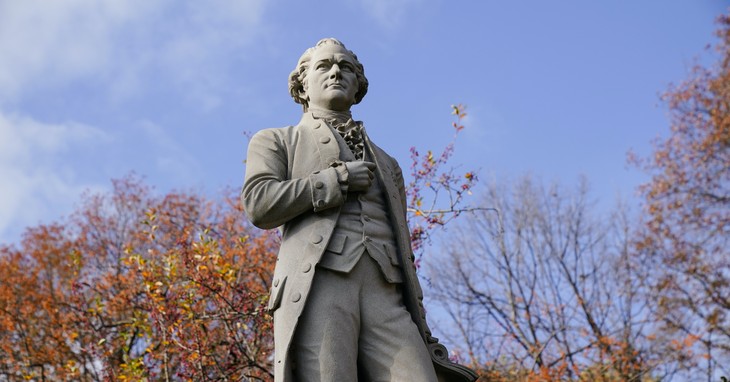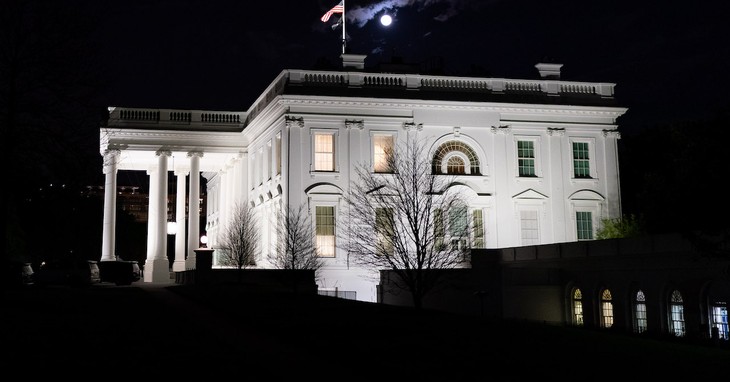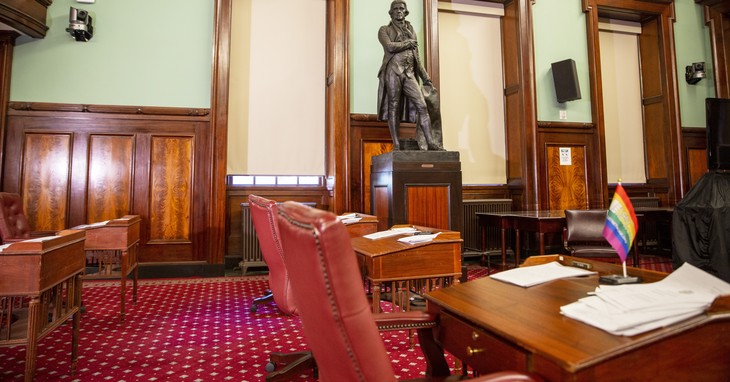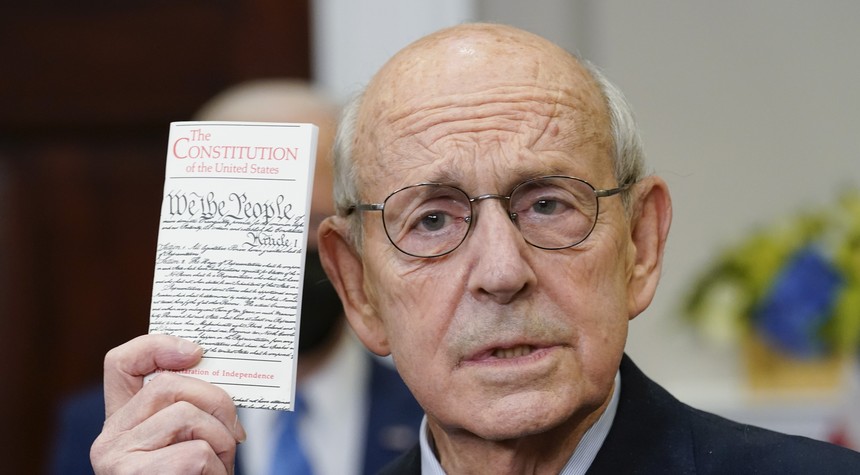A Remedial Lesson on a Republic Versus Democracy in This Era of Revisionist History
In the face of so many employing the term, we need to readdress how this country is not a democracy.
Over the past few years, it has become more than fashionable for Democrats and those in the media to cling tightly to the concept of preserving our “democracy.” It has become an almost knee-jerk invocation when any party-based issue is presented; something either needs to be done, or needs to be blocked, due to “a threat to our democracy.”
This line of arguing became turbocharged following the riot at the Capitol, but it had been in place for a time prior. The Washington Post adopted the catch-phrase, “Democracy Dies in Darkness” back in 2017, as a response to Donald Trump being sworn into office (and it continues this very week, as Margaret Sullivan rested upon this tired concept.) Trump’s ascendancy was the flashpoint for many on the left to begin not only using the protection of democracy as a mantra but to begin calling for needed changes in our government due to the inability to preserve our way of governing.
Look at the calls to rescind the Electoral College. It has been deemed unfair that anyone could reach the White House while being technically outvoted. The numerous ironies begin here, as the response to seeing Trump ascend to the presidency as a populist leads to a call that we rely on the popular vote. The EC, goes the argument, is an outmoded model from the Colonial days and has no practical application today. Those Founders were fine in spirit back in the day, but they really were not sure what they were doing, goes the argument.
This line of thinking is also applied to the call to repeal the filibuster in the Senate. It is, again, called “unfair” that the Democrats’ agenda items can be stalled out because they cannot achieve a majority on policies, but this argument has to ignore realities. The Senate currently is actually an even split; there is no minority party. Additionally, this centuries-old practice has never been deemed such a problem before Joe Biden’s arrival.

Look at the arguments being made against the filibuster – it is antiquated, unfair, unconstitutional, anti-democratic, and racist (somehow). But remember, the Democrats LOVED the filibuster all the way up to 2020. That year, their party used that Senatorial tool a record number of times. Then, in a matter of months, it instantly became a practice that needed elimination.
This line of thinking also extends to the Senate body in its entirety. Because of the inherent frustration of a divided chamber more voices are coming forward calling to restructure that limb of our government. It is not fair that small lower-populated states have an equal voice in votes. It is hard to imagine what is larger in these talks, the ignorance or the short-sightedness because those forming these ignorant arguments fail to contemplate that their restructured government will someday be in the hands of the other party.
It’s obvious why they are desperate in calling for these measures. The Democrats feel as if they are on the cusp of a wholesale mandate and can push through their agenda, while facing an expiration date. They are aware in the coming months that change is arriving, given the upcoming mid-terms represent the historical opposition party pendulum swing — although polls indicate it may be more like “The Pit and the Pendulum” swing. As a result, there is this reliance on a claimed need to save our democracy.
Now let us step back for a moment and look at this picture. The very same voices supposedly concerned about the integrity of our nation and maintaining the sanctity of our government are at the same time calling for a complete overhaul of our governmental structure. How can one intellectually argue that we need to preserve our institutions by rescinding a centuries-old practice, expunging a core concept in the Constitution, and raze one of our arms of government?! It is an undiluted emotional reaction and it is rooted in the ignorance that we are supposedly a democratic nation.

Many of us have seen the argument made on social media that we are not a democracy but a representative republic. While this may sound trite, it is wholly accurate. Those pushing for change face this with some form of a “Yeah, but…” rebuttal, trying to suggest that the federalist construct is simply a modification of democracy, and that quaint arrangement is outmoded today. We need to revert back to democratic intentions. This is where their ignorance is on full display because the Founders did not accidentally drift from democracy, nor did they attempt to reform it with a new version of governance – they intentionally sought to avoid a democratic-run nation.
The first evidence I’ll use to get their attention comes from the Broadway star, Alexander Hamilton. At the Constitutional Convention, he gave voice to the position of many of the Founders that the direct intent was to be a republic, for the purpose of not wanting to fall prey to the pitfalls that a true democracy would deliver.
“We are now forming a Republican form of government. Real liberty is not found in the extremes of democracy, but in moderate governments. If we incline too much to democracy we shall soon shoot into a monarchy, or some other form of dictatorship.”
Consider this potential popular vote scenario. Californians propose some kind of daft environmental policy that needs to be followed on a national level. People in Democratic urban centers, not well-versed on agrarian realities, go along with the party idea. Those states with excessive farmlands and fewer people see the problems this policy will have on farming, but they become outvoted in a democratic alignment. As a result, the popular will can start to affect the national food supply. This is why an equally-weighted Senate is a needed check on such scenarios.
Thomas Jefferson focused on this type of issue in his inaugural address in 1801.
“The will of the majority is in all cases to prevail, that will to be rightful must be reasonable; that the minority possess their equal rights, which equal law must protect and to violate would be oppression.”

In the Federalist Papers No. 10, James Madison had this very thought as well, prior to ratification of the Constitution.
Hence it is that such democracies have ever been spectacles of turbulence and contention; have ever been found incompatible with personal security or the rights of property; and have in general been as short in their lives as they have been violent in their deaths.
It did not take long for Madison to be shown correct. As a point of direct comparison, France went through its own revolution near the same time as that of our country. In its adherence to pure democratic rule, that country went through at least a dozen changes in its governance structure, including three monarchies in that time. All the while, the United States has maintained the same government for centuries.
The modulation of a representative republic has maintained that order. The Founders did not stumble across an archaic point of order; it was an intentional framework to prevent imbalanced governance and provide equal voices. The Senate is by design a check on the rule of the majority. The will of the people is heard in the House, but the Senate is the voice of the republic, and that is the braking system if the masses want to exert control.
What those complaining today are actually saying is they are mad that they cannot push their will on the country. They want to force an issue rather than sway the collective minds, and they are angry that the Founders anticipated this type of effort. As a result, today we have numerous voices inaccurately calling to preserve our democracy, and their solution to that involves stripping down the frames that have been in place for centuries.
It is notable that in making this rash and monumental call for renovating our core principles, they are calling their opponents the extremists.





Post a Comment